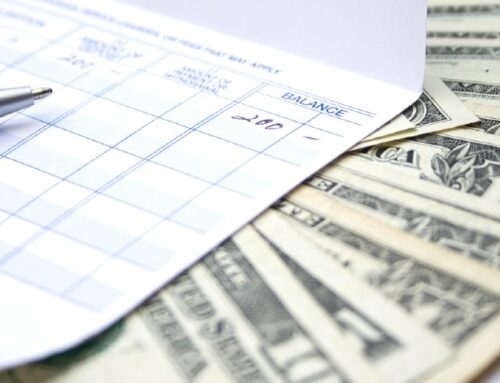Opening a checking account is a vital step in managing your finances, offering you a safe and convenient way to access your money for daily expenses, bill payments, and more. Whether you’re a first-time account holder or simply switching financial institutions, understanding the basic requirements can streamline the process and prevent unnecessary delays.
While the steps are relatively straightforward, you’ll need to be prepared with the right documents and information. In this article, we’ll explore what you need to open a checking account in Arizona, and what other features—like overdraft protection, debit cards, and online banking—are worth considering.
Information Typically Needed to Open a Checking Account
There’s some basic information banks and credit unions will require when you open an account. Here’s what’s to expect and what paperwork you need to open a bank account:
- Full legal name: Your full name as it appears on official documents will be required. This ensures the financial institution can correctly identify you and set up your account in line with legal requirements. A driver’s license or passport can serve as proof of name.
- Social Security Number (SSN) or Taxpayer Identification Number (TIN): Financial institutions use your SSN or TIN to comply with federal regulations, such as tax reporting and to verify your identity for security purposes. Non-U.S. residents may need to provide other identification numbers depending on the institution’s requirements. Be prepared to present your Social Security card or TIN document.
- Date of birth: This is another way to confirm your identity and ensure you meet age requirements, as many institutions require you to be 18 years or older to open an account. Some may allow minors to open joint accounts with a parent or guardian. A birth certificate may be required.
- Residential address: You will need to provide your current home address to mail account statements and other important documents. This also serves as proof that you are within the financial institution’s service area. Proof may include a utility bill to the name and address you’ve provided.
- Phone number and email address: Providing a phone number and email ensures the institution can communicate with you regarding your account, including transaction alerts and account updates. You’ll also need this information to set up online and mobile financial banking.
- Employment information: Although not always required, some institutions ask for employment details. This can include your employer’s name, address, and your job title. This may be needed to determine your financial standing and sources of income. A paycheck stub can provide the proof you need.
- Source of funds: You may be asked where your initial deposit or future deposits will come from (e.g., salary, savings, or investment returns). This information helps institutions comply with regulations to defeat money laundering.
Will You Need to Make a Deposit?
Most financial institutions require an initial deposit to open a checking account, though the amount can vary based on the type of account or the financial institution itself. Here’s what to consider:
Minimum deposit requirements: Many financial institutions will require a minimum opening deposit, which is usually between $25 and $100. Some financial institutions may even allow you to open an account with as little as $1.
Certain premium accounts may have higher initial deposit requirements, sometimes as high as $500 or more, depending on the perks and features they offer (such as higher interest rates or waived fees).
Types of deposit methods: If you’re opening your account in person at a local branch, you can make your deposit in cash. You can also use a personal check from another account or a cashier’s check to fund your new account.
If you’re opening the account online, you can transfer funds from another financial institution account, whether it’s a checking or savings account. Some financial institutions also allow funding via apps like Zelle, PayPal, or Venmo.
Other Considerations When Opening an Account
When opening a checking account, there are a few additional features and services you should keep in mind to ensure you get the most value from your new account. Here are some important considerations:
Overdraft protection
Overdraft protection is a service offered by most financial institutions that links your checking account to another account, such as a savings account or credit card, to cover transactions if you don’t have enough money in your checking account.
Without this protection, your account could become overdrawn, leading to fees or declined transactions. With overdraft protection, the financial institution automatically transfers funds from your linked account, typically for a small fee.
However, overdraft protection is not free at many institutions. If you frequently find yourself close to overdrawing, this could end up costing more in transfer fees, so it’s essential to weigh the benefits.
Debit cards
Nearly all checking accounts come with a debit card, which allows you to make purchases, withdraw cash from ATMs, and even pay bills directly from your account.
Many financial institutions now offer contactless debit cards, which use technology like near-field communication (NFC) to allow for secure, tap-to-pay transactions at stores.
Your debit card is also linked to your account for online shopping and setting up recurring payments, but keep in mind that unlike a credit card, you’re spending your own money, so make sure to monitor your balance regularly to avoid overdraft fees.
Online and mobile banking
Most financial institutions offer a robust online banking platform and mobile apps that allow you to access your account anytime, anywhere. You can check your balance, transfer funds, pay bills, and even deposit checks through your phone using mobile check deposit.
Many apps also come with tools to help you manage your budget, set up alerts for low balances or large transactions, and lock or unlock your debit card if it’s lost or stolen.
Some financial institutions offer integrated digital wallets, allowing you to make secure mobile payments directly from your checking account.
Checking account fees
Be mindful of any potential fees associated with your checking account, such as monthly maintenance fees, ATM fees, and overdraft fees. Some financial institutions waive monthly fees if you maintain a minimum balance or set up direct deposit.
Additionally, many financial institutions offer fee-free accounts for students, veterans, or seniors.
Open an Account With AZCCU
Opening a checking account is simple when you have the right information and documents. Ensure you bring valid identification, proof of address, and be ready to make an initial deposit. Don’t forget to explore additional features like overdraft protection, debit cards, and online financial banking to get the most out of your new account.
Arizona Central Credit Union can help with all your needs, including checking and savings. If you have any questions, contact us online or call (866) 264-6421.




